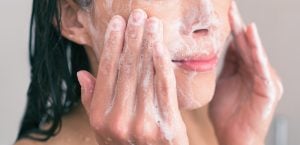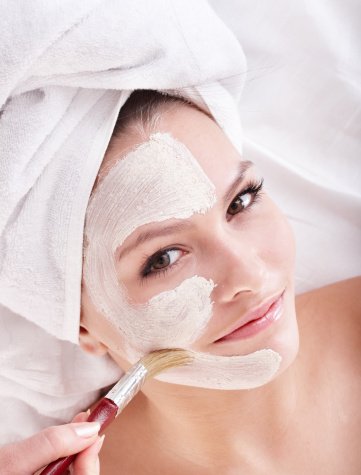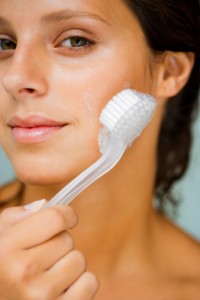Subscribe to our blog to stay informed
Subscribe to our blog for the latest skin health tips, product launches & news.
Subscribe to our blog for the latest skin health tips, product launches & news.
Exfoliation and skin cell turnover are essential to maintaining healthy, youthful appearing skin.

Why is Exfoliation Important?
Skin cell turnover is the natural process by which skin cells mature, migrate to the surface and die, creating a protective layer against the environment. Your superficial skin cells should be regularly shed to prevent excess buildup. As we age, the process of cell turnover slows down. This means that the body is slower to shed skin cells and generate new ones. Sometimes dead cells don’t shed completely.
When these old skin cells accumulate on the surface, it leads to a dull, rough, and dry appearance. Furthermore, these dead skin cells can mix with oils on the skin, resulting in clogged pores, blemishes, breakouts, and comedones (whiteheads/blackheads).
If skin cell turnover did not happen, exfoliation would be damaging and painful. But because your body continually produces and repairs skin cells, gentle exfoliation simply maintains an adequate layer of protection while preventing clogged pores and dullness. By removing the barrier of dead skin cells, fresh new cells below are revealed. This helps even skin tone, and allows skin care products to penetrate more deeply into the skin, which makes them more effective.
Exfoliation is the chemical or mechanical action by which you remove the uppermost layer of (dead) skin cells—the stratum corneum.
There are a few common types of exfoliation:
Manual exfoliation—uses a mild abrasive component to help gently remove the dead cells with a gentle scrubbing action. Usually a gentle scrub or cleanser can easily help you exfoliate at home.
Facial masks- Masks use a combination of manual exfoliation by physically removing the dead skin cells, as well as gentle ingredients to promote sloughing of these dead skin cells.
Chemical peels—utilizes a mild acid to remove the top layers of the skin. Common ingredients include alphahydroxy acids, betahydroxy acids and trichloracetic acids. Chemical peels are generally done under the expertise of a trained skin care professional!

Both skin renewing processes are vital to achieving and maintaining healthy, beautiful skin.
Skin cell turnover
Exfoliation:

When you exfoliate your skin and unclog your pores, which can help prevent the formation of whiteheads and blackheads. Dead skin seals your pores, so oil produced by the sebaceous glands get trapped in your pores. This causes breakouts because there is nowhere for the oil to go. Keeping your pores open allows the oils to escape, reducing breakouts, blemishes, and acne.
In cases of acne, it is important not to “over-exfoliate”. Listen to your skin and reduce the amount of exfoliation if your skin becomes sensitive or red. Consider gentle physical exfoliation 1-2 times per week if your skin can tolerate it
Having your pores unclogged and free of dead or dry skin allows your skincare products to penetrate more deeply and effectively. The serums, moisturizers, and active ingredients in your products can penetrate deeper into the skin, giving it more staying power and efficacy! The dead skin otherwise becomes a barrier between your skin and products.
People with dark spots, hyperpigmentation, and scars often have a difficult time evening their skin tone. Exfoliants help to break down dead skin while at the same time smoothing its overall texture and tone. This also promotes the skin cell turnover process, which can replace the older cells with newer cells. Over time, this can help make the skin appear more uniform over time.
Exfoliation helps remove the dead skin cells and toxins from the superficial layer or skin. This allows oxygen to reach the skin and can improve cell circulation and detoxify the skin. This can give your skin a rejuvenated and fresh appearance. By increasing cell turnover, the skin is stimulated to produce collagen as well. This helps reduce the appearance of fine lines and aging
Content copyright 2009—2020.
Hale Cosmeceuticals Inc. All rights reserved.